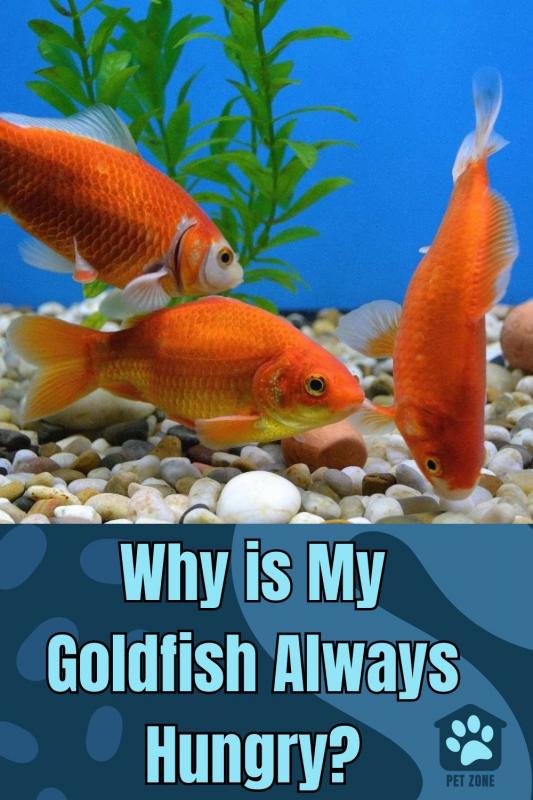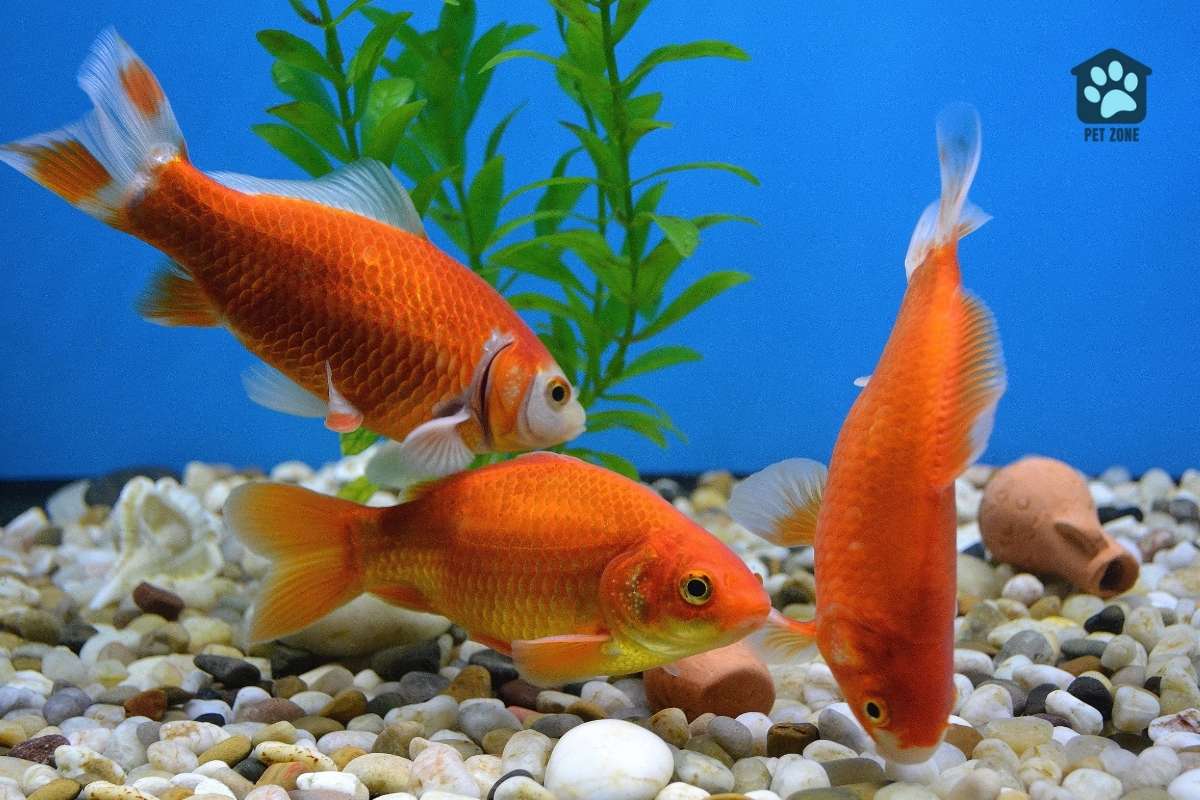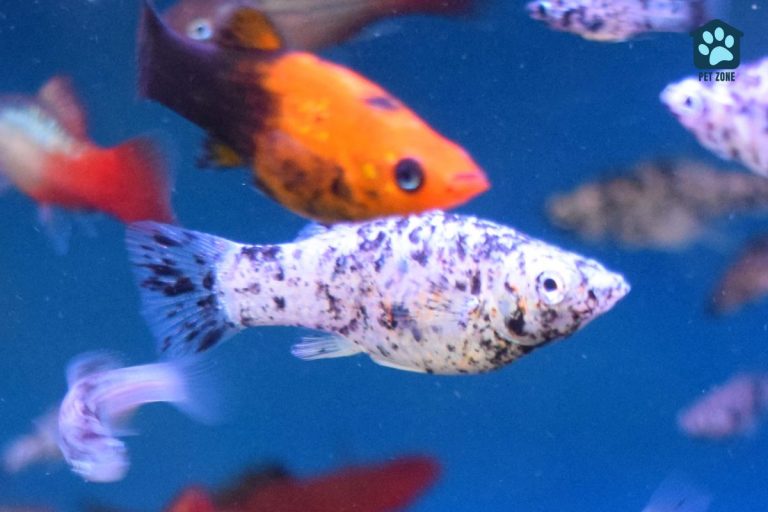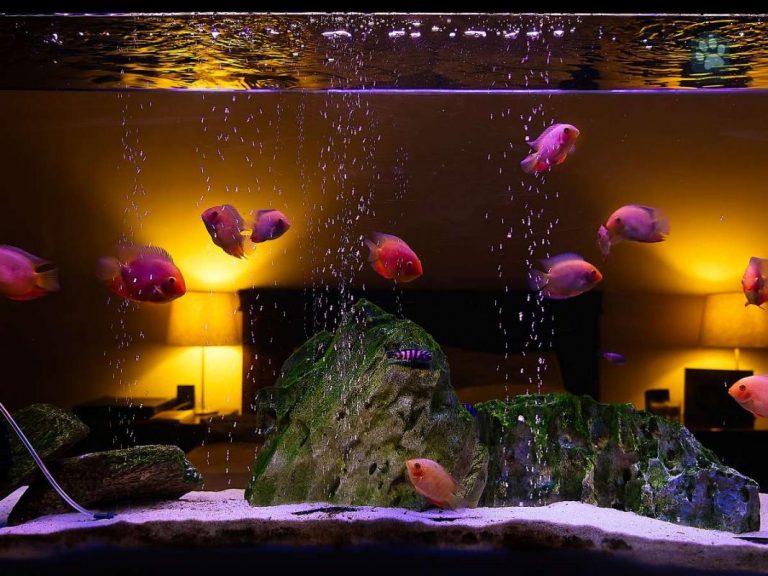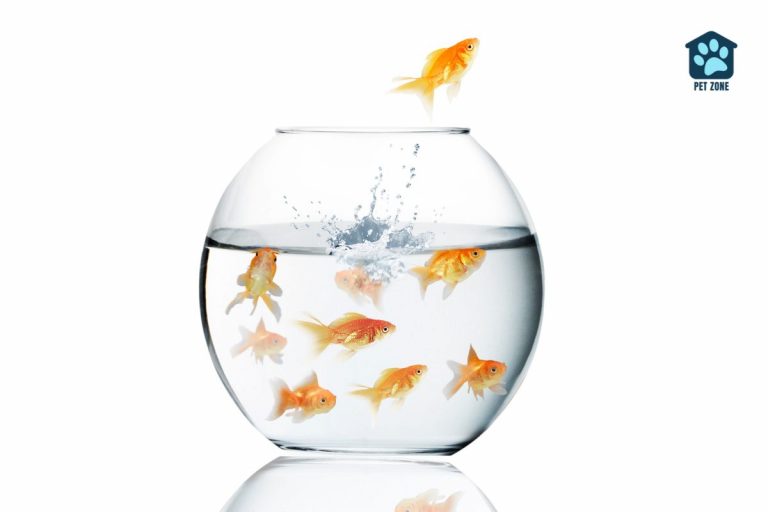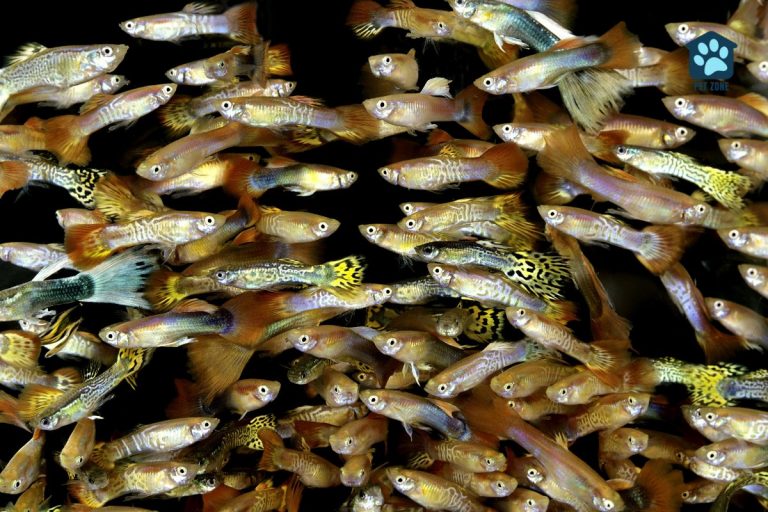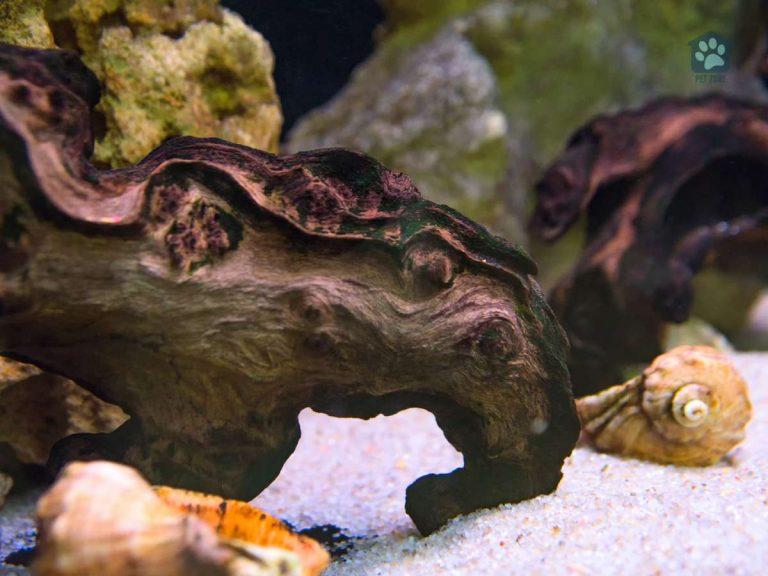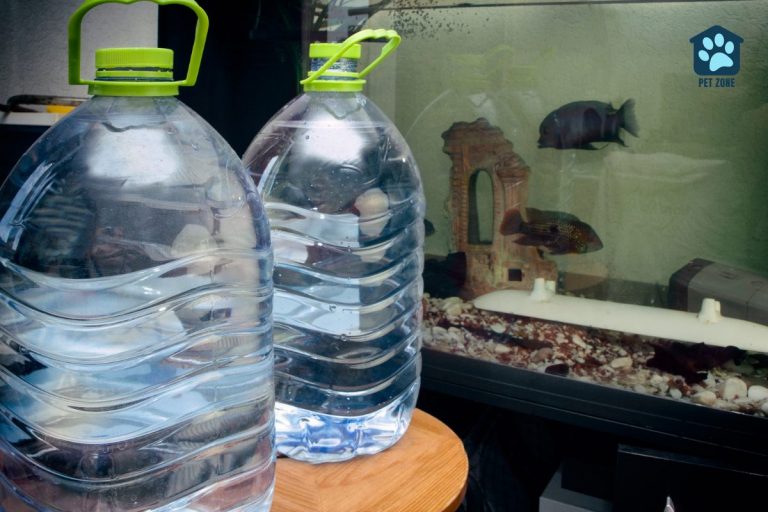Estimated reading time: 7 minutes
Have you ever watched your goldfish swim up to the glass, as if begging for another meal? You just fed them, but they act like they haven’t eaten in days. It’s a common question many goldfish owners have: Why does my goldfish always seem so hungry?
Did you know that goldfish don’t have a stomach? That’s right! And this unique digestive system can lead them to always feel hungry. In this article, we’ll explore the reasons behind your goldfish’s insatiable appetite and provide tips on how to prevent overfeeding. Stay tuned for some fin-tastic advice that will keep your goldfish healthy and satisfied!
Key Takeaways
- Goldfish don’t have a stomach, so they always feel hungry. Their unique digestive system means that food moves quickly through their bodies.
- Overfeeding a goldfish can harm its health and lead to swim bladder problems. It’s important to feed them the right amount of food to keep them happy and healthy.
- Signs of overfeeding include leftover food in the tank, swimming problems, and a cloudy and dirty tank. These issues can be avoided by not giving your goldfish too much food.
- To prevent overfeeding your goldfish, establish a proper feeding schedule, give appropriate portion sizes based on their size and age, and regularly clean the tank to maintain water quality. This will help keep your goldfish healthy and satisfied.
Reasons for Goldfish Always Being Hungry
Goldfish constantly being hungry can be attributed to several reasons including their lack of a stomach, constant waste production, and insatiable appetite. Additionally, overfeeding may also contribute to their constant hunger.
No stomach
You might be surprised to learn that goldfish don’t have a stomach like humans or other pets. That’s right, no stomach! Instead, they have a straight digestive tract that processes food almost immediately after they eat. This means they don’t store food for later digestion.
Food moves quickly through their system, and nutrients get absorbed along the way. Because of this unique setup, goldfish are always on the lookout for more food. It’s not that they’re greedy; it’s just how their bodies work.
This also means that overfeeding can lead to problems like poor water quality and health issues for your goldfish. So, understanding how your fish digests food can help you feed them in a way that keeps them healthy.
Constant waste production
Goldfish eat a lot and produce much waste. Their simple digestive system pushes most of the food out as waste after taking in nutrients. They act like tiny, living trash cans. If your goldfish is always eating, it is also always making waste.
Too much waste can harm the water quality in the tank. The good bacteria that break down this waste might get overwhelmed if there’s too much to handle. Then, the tank water gets cloudy or dirty because of all this excess waste from overfeeding your goldfish.
Insatiable appetite
Goldfish eat a lot because they are always hungry. They don’t feel full, so they keep eating when food is in the tank. Because their bodies turn most of what they eat into waste right away, this makes them even hungrier.
Their big hunger comes from how they live in nature. Goldfish like to spend all day looking for and eating small bits of food. This is why your goldfish seems to want to eat all the time at home too! It’s normal for them but can be bad if there’s too much food around all the time.
Possible overfeeding
Overfeeding your goldfish is a possible reason why it always seems hungry. Goldfish don’t have a stomach, so they constantly produce waste and have an insatiable appetite. If you feed your fish too much or too often, it can lead to overfeeding.
This can be harmful to their health and may even result in death. Signs of overfeeding include leftover food in the tank, swimming problems, and a cloudy and dirty tank. To prevent overfeeding, establish a proper feeding schedule, give them appropriate portion sizes, and regularly clean the tank to maintain water quality.
If you should accidentally overfeed your goldfish, a few days without food should help to reverse the issues. Surprisingly, adult goldfish can live for anywhere from 5-15 days without food.
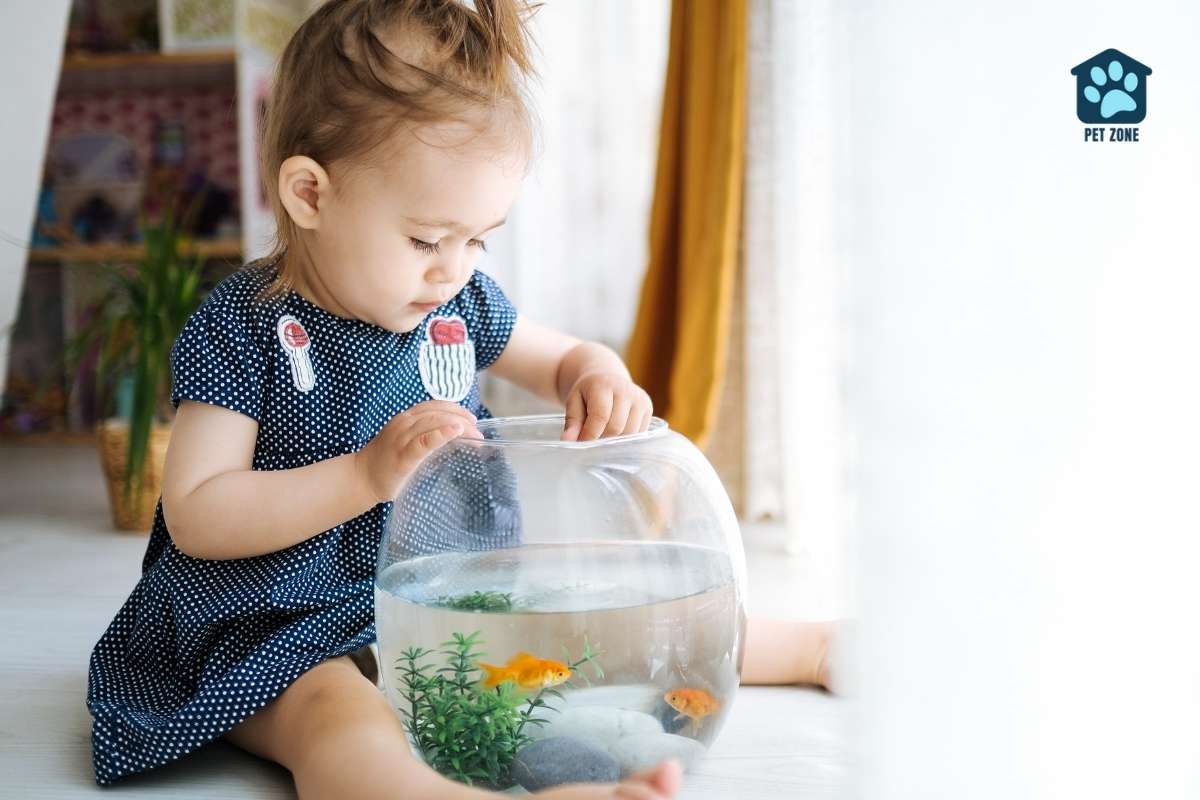
Signs of Overfeeding
Leftover food in fish tank
When you overfeed your goldfish, there is a high chance that there will be leftover fish food in the tank. This can be harmful to your fish and the overall health of the aquarium. The uneaten food can rot and lead to poor water quality, making it unpleasant for your goldfish to swim in.
Additionally, leftover food can clog the filter and decrease its efficiency in keeping the water clean. It’s important to avoid overfeeding to prevent these issues and maintain a healthy aquarium ecosystem.
Swimming problems
When goldfish are overfed, they may have buoyancy issues and struggle to maintain balance in the water. This can cause them to swim awkwardly or float near the surface of the tank.
One common problem caused by overfeeding is swim bladder issues, which affect the fish’s ability to control its buoyancy. Signs of swim bladder problems include bloating, raised scales, and a swollen abdomen.
To prevent these swimming problems, it’s important to feed your goldfish the right amount of food and avoid overfeeding them.
Cloudy and dirty tank
Overfeeding your fish can lead to a cloudy and dirty tank. When you feed goldfish too much, they can’t eat it all. The excess food sinks to the substrate at the bottom of the tank. These leftover food bits create excess waste that can make the water cloudy and dirty.
The bacteria in the water will break down this waste, producing even more ammonia, which is harmful to your goldfish. This not only affects the overall health of your fish but also makes it harder for them to breathe properly.
So be careful not to overfeed your goldfish if you want to keep their tank clean and their environment healthy!
How to Prevent Overfeeding
Proper feeding schedule
Scheduling regular feeding times is important for their overall health. It is recommended to feed them three times a day, making sure not to overfeed. A good rule of thumb is to give them only as much food as they can eat in about five minutes.
You can use a timed feeder to stick to a schedule and prevent overfeeding. By following a proper feeding schedule, you’ll ensure your goldfish gets the right amount of food for their growth and nutrition needs.
Appropriate portion sizes
Feeding your goldfish the right amount of food is crucial to their well-being. It’s important to provide appropriate portion sizes to prevent overfeeding and its negative effects. Overfeeding can lead to obesity, reduced water quality, and swim bladder issues.
The recommended approach is to feed your goldfish small amounts of food two or three times a day, based on their appetite. By monitoring their behavior and adjusting the portion sizes accordingly, you can ensure that your goldfish stays healthy and happy.
Regular tank cleaning
Regular tank cleaning is vital for maintaining the health and well-being of your goldfish. By removing uneaten food, waste, and excess nutrients from the water, you can prevent overfeeding and maintain good water quality in your aquarium.
Overfeeding can lead to a buildup of waste and rotting food, which can create harmful ammonia and nitrite spikes that are dangerous for your fish. Additionally, excess nutrients from overfeeding can contribute to algae growth and clog filters or other equipment.
By regularly cleaning the tank, you can ensure a clean and healthy environment for your goldfish to thrive in.
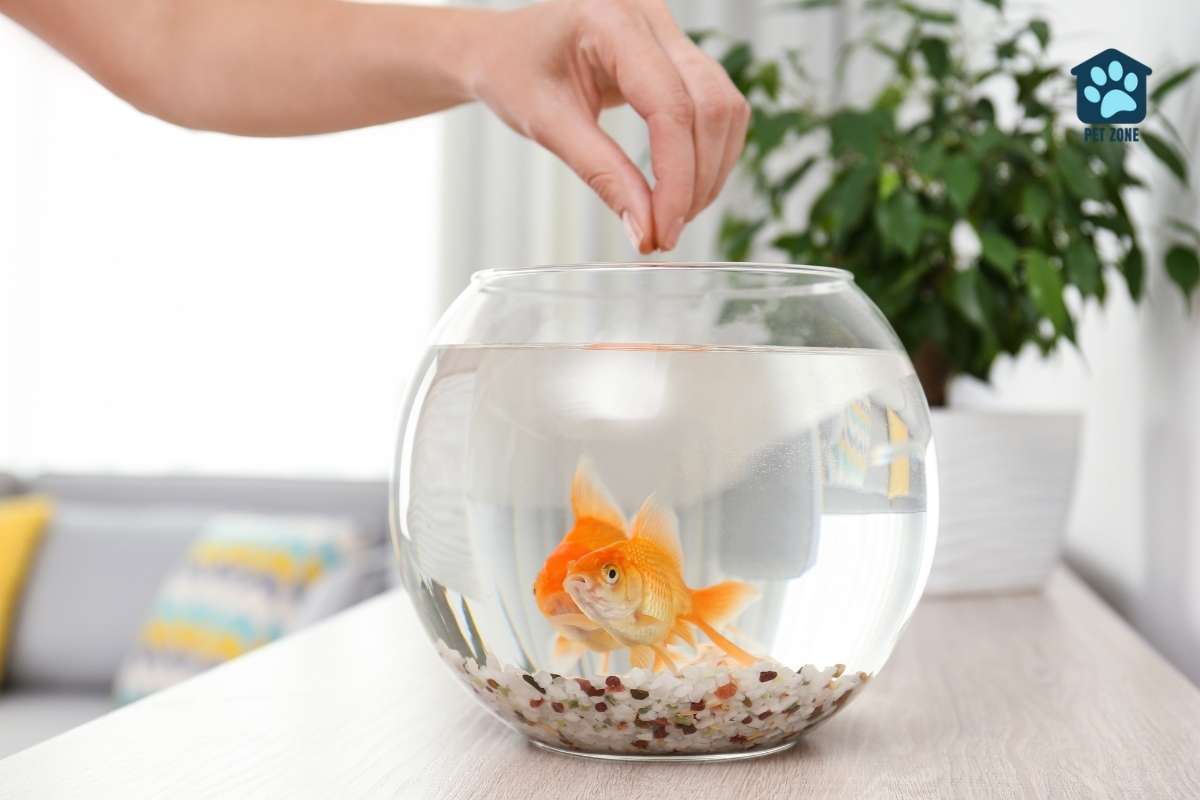
Conclusion
Goldfish can always seem hungry because of their unique digestive system. Overfeeding them can lead to health problems and poor water quality. By following a proper feeding schedule and providing nutritious food in appropriate portions, you can help ensure your goldfish’s overall well-being and prevent them from constantly feeling hungry.
As an Amazon Associate I earn from qualifying purchases.
